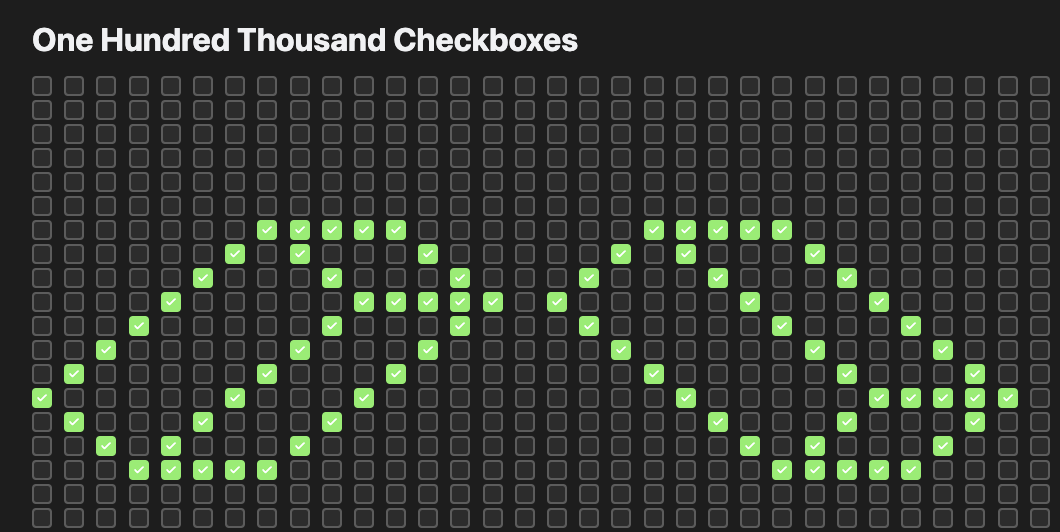Deploy 100,000 multiplayer checkboxes on Modal with FastHTML
This example shows how you can deploy a multiplayer checkbox game with FastHTML on Modal.
FastHTML is a Python library built on top of HTMX which allows you to create entire web applications using only Python. For a simpler template for using FastHTML with Modal, check out this example.
Our example is inspired by 1 Million Checkboxes.
Class for tracking state to push out to connected clients
